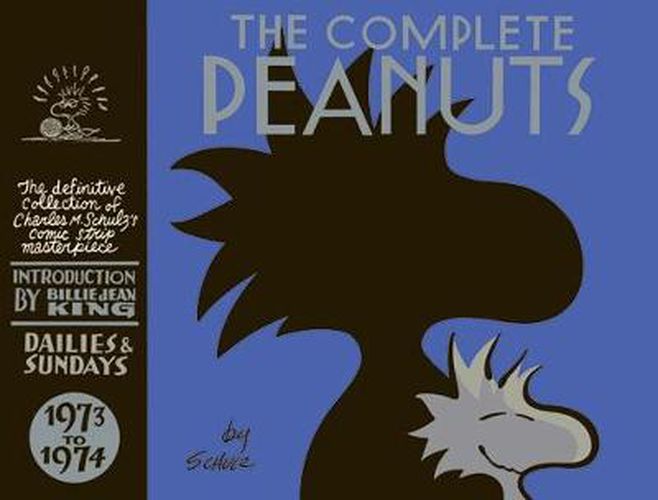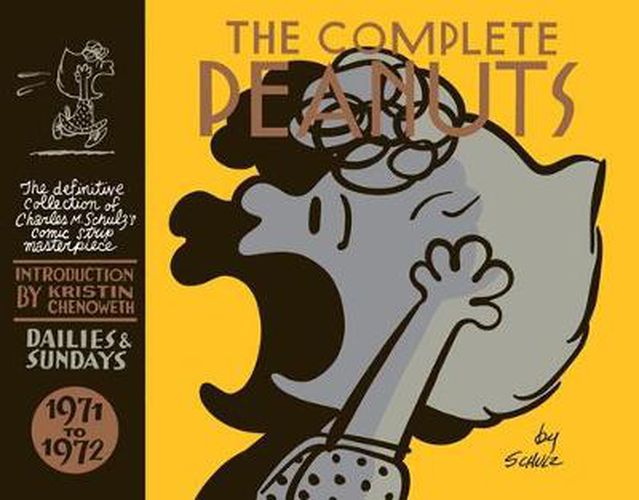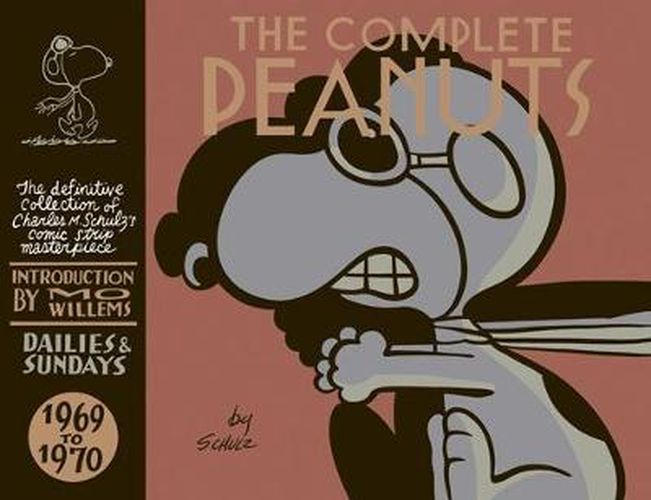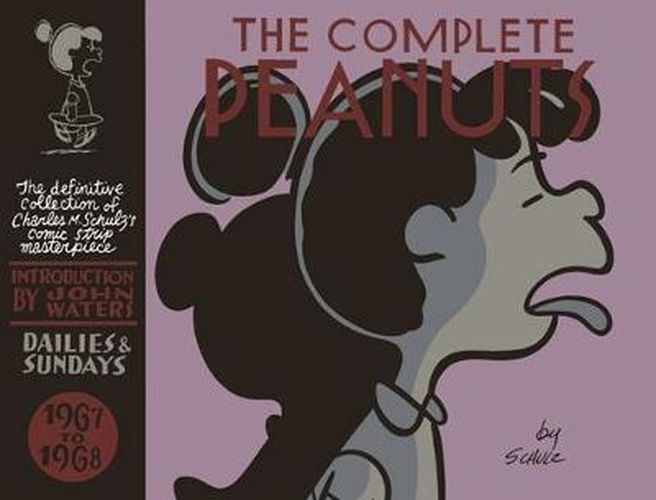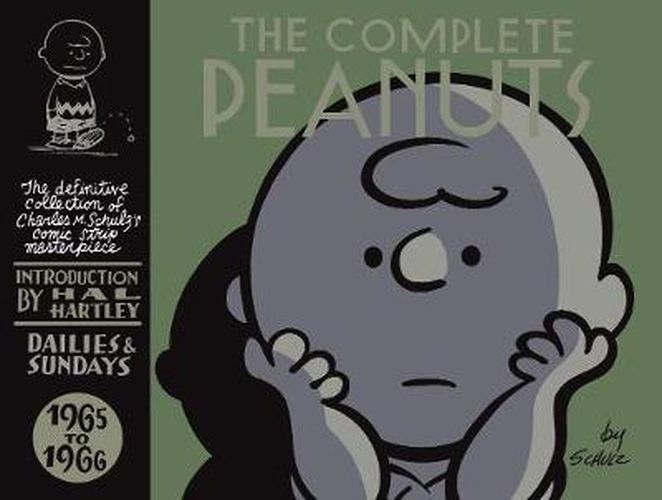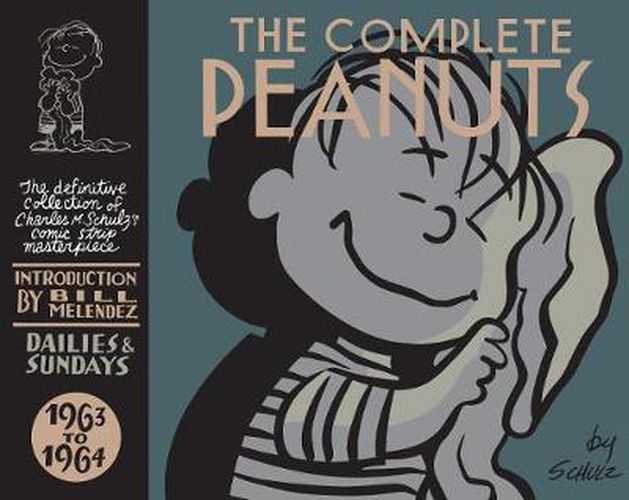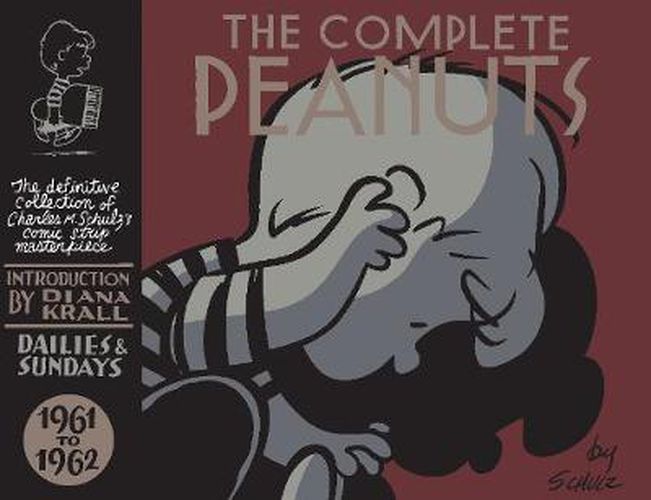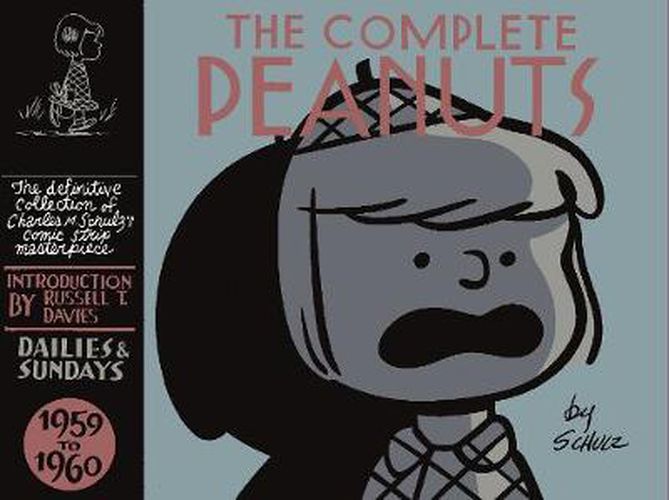What I Loved: The Complete Peanuts by Charles M. Schulz
There’s this story about Charles M. Schulz, the creator of Peanuts, that I really love. After drawing and writing strips for close to 50 years, uninterrupted except for a five-week break in late 1997 to celebrate his 75th birthday, he was diagnosed with cancer. The illness soon began to affect his ability to see clearly and, as a result, he announced his retirement. Later, in an interview on The Today Show in 1999, Schulz said that some time after drawing his final panel, he looked up and thought, ‘You know, that poor, poor kid, he never even got to kick the football.’ For those who’ve never read a Peanuts comic, Schulz is referring to a long-running gag where the main protagonist, Charlie Brown, is repeatedly thwarted in his attempts to kick a football by the bossy, vivacious Lucy.

Example of the football gag (10 October, 1982)
Much like a television sitcom, the world of Peanuts features a cast of characters who all operate within their own idiosyncratic framework, from Lucy’s enduring love for the musically talented and definitely-not-interested Schroeder to Peppermint Patty’s mistaken belief that Snoopy is just a ‘funny-looking kid with a big nose’. (A mistake easily made given the dog’s lovable tendency to act human.) Perhaps it is Schulz’s adherence to this winning formula – one that rewards our love for nostalgia – that has ensured the overwhelming popularity of Peanuts over the years.
Back in 2003, Fantagraphics Books announced an ambitious project: the complete reprinting of every Peanuts strip, to be published in 25 volumes over 12 years. Now up to volume 19, this is a mammoth undertaking and I’m more than a little in love with it. Reading from the very beginning, it’s fascinating to see how Schulz’s comics have developed in terms of artistic style as well as character and narrative.

The first published
Heads change shape while characters appear, vanish and grow older in strange ways. For example, even the famous football gag I mentioned earlier was originally performed by another little girl named Violet, who later disappeared.
One of my favourite Peanuts moments (first published in a strip on 25 April, 1960 and later the inspiration for a book with the same title) is ‘Happiness is a warm puppy’. To regular readers, Lucy and Snoopy’s animosity is well known. They fight and treat one another with disdain. Perhaps most memorably, Snoopy will often plant a surprise kiss on Lucy, causing her to run away screaming. Yet in this particular strip the girl embraces the ‘stupid beagle’ to the pleasing sound of ‘mmmmm’.

‘Happiness is a warm puppy’ (25 April, 1960)
As a dog lover, this sweet, simple interaction tugs a heartstring, but what I really like is the implied understanding that while Lucy and Snoopy will invariably clash, there’s love here as well. Even as Schulz is delivering the familiarity we so often seek as readers, he suggests there will always be exceptions to the rule.
And so I wonder, why didn’t he make an exception for Charlie Brown? Just imagine if, in that final strip, the little boy had kicked that football.
On the one hand, I do wish for the pleasure such a triumphant moment would have awarded me, yet I also like that Schulz withheld this ending. His decision reveals a deeper truth: a sense that sometimes things don’t happen and ‘that’s the way it goes’. Charlie Brown is not going to be anyone other than Charlie Brown, and that’s okay too.


